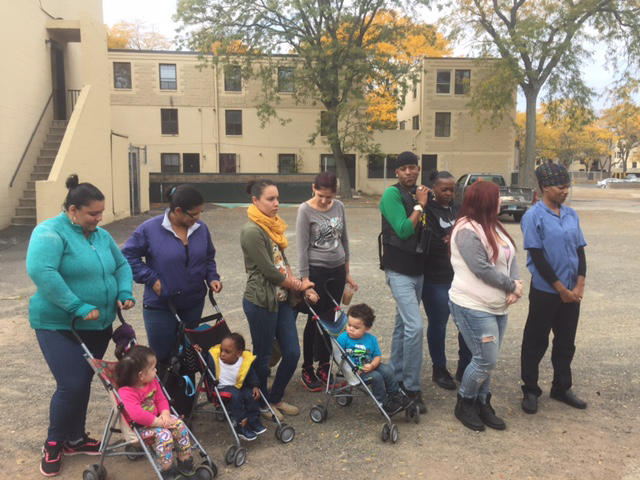
After living with chronic leaks and health-endangering mold for years, residents of the affordable housing complex Church Street South filed a class-action suit Thursday afternoon against owner Northland Investment Corporation.
With local attorney David Rosen LAW ’69, six individuals submitted a class-action suit with roughly 80 other families alleging that Northland owes them damages for three years of neglect, leading to physical injuries, medical care and emotional distress, among other hardships. The filing is the latest development in a yearlong legal battle between Church Street South residents and the real-estate company, which purchased the 301-unit complex in 2008.
Since last year, Northland has been working with local and federal agencies to move residents out of the housing complex after a dozen families filed lawsuits alleging that it neglected upkeep on the property. As Northland begins its plans to replace the complex, which has begun to be demolished, the families who lived there must receive their fair share of money to show that landlords cannot neglect their responsibility to tenants, Rosen said.
“The investment company has always wanted to do something more profitable, someplace where they can charge rents that are a lot higher,” he said. “But the people who are actually living here are collateral damage to that plan.”
Northland did not respond to a request for comment Friday morning.
The company purchased the complex with plans to convert that land, right across from Union Station, into market-price units. But in 2012, Northland could not agree with the Board of Alders on the number of affordable housing units to be built.
The company continued upkeep, receiving $3 million per year in federal affordable housing funding, but a severe winter between 2014 and 2015 exacerbated structural damages beyond Northland’s control, CEO Lawrence Gottesdiener wrote in an email to the News in 2015. By September 2015, the U.S. Department of Housing and Urban Development was reporting more than 1,000 yearly health and safety deficiencies at the property.
By September 2016, Northland had moved more than half of residents out of the complex.
Along with the 85 families on the lawsuit, Rosen estimates that more than 700 other current and former residents of Church Street South would be eligible for damages.
For Calixmarie Guzman, who lived in Church Street South for two years and is an unnamed plaintiff, conditions in her unit made it uninhabitable.
“I had a free waterfall in my living room,” she said.
Each day when she came home from work, a new puddle had formed in her basement, Guzman said. Although office workers at the complex took her messages about the leak, she had to complain multiple times before it was repaired, she said.
Even after it was fixed, Guzman said, the solution lasted only a month: The leak reappeared along with more mold.
“They were telling me I couldn’t take as many showers in the house,” Guzman said.
Doctors diagnosed one of Guzman’s two sons with pneumonia and the other with bronchitis, and all three family members have asthma, which Guzman partially attributes to the leaks in her apartment.
Inadequate patching jobs in the ceiling were also common for Leeza Skovinski, who lived with her newborn son at the complex for two years. She said maintenance would make only temporary fixes for leaks in her apartment and even stopped responding to maintenance calls. One day her apartment’s ceiling caved in and water flooded the floor, Skovinski said.
The landlord relocated Skovinski and her son to a larger unit within Church Street South, but it had heating problems for over a month, Skovinski said. Friends and family members had to pick up her son and bring him to their house so he could have a hot bath.
Both Guzman and Skovinski have been relocated to other homes in New Haven under federal affordable housing programs.
“It’s a big jump up from here,” Skovinski said.
Northland also operates in other states including Texas, Florida and Massachusetts.







